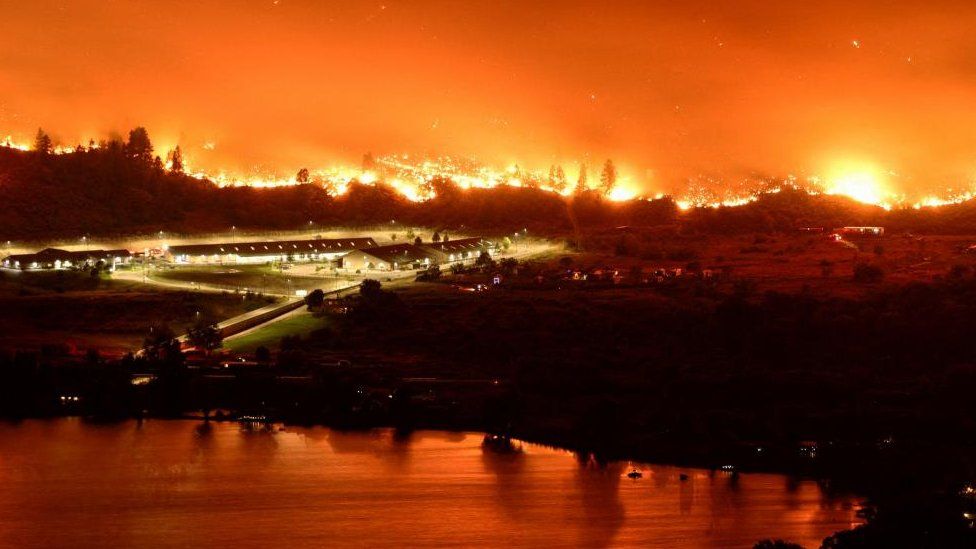ARTICLE AD BOX
 Image source, Reuters
Image source, Reuters
A view of the Eagle Bluffs Wildfire last year - Canada's worst-ever for wildfires
By James FitzGerald
BBC News
Canada's government says it is preparing for another "explosive" wildfire season, for which it is training extra firefighters.
A warmer-than-normal winter has left little snow on the ground and has compounded droughts in several regions.
Last year was by far Canada's worst for wildfires, with 15 million hectares (37 million acres) of forest burned.
Linking the issue to climate change, a minister warned that this year could prove even more devastating.
The summer was impossible to predict, but wildfires would continue to pose a "significant challenge" for the foreseeable future, said Harjit Sajjan, the minister for emergency preparedness.
At a news conference, Mr Sajjan called attention to "extreme drought conditions" in southern Alberta, British Colombia and Southern Ontario.
He said above-normal temperatures had also caused earlier snow-melts, and that heat and dryness nationwide meant that the wildfire season was likely to start sooner.
Globally, last year was the hottest on record - driven by human-caused warning, but also boosted by a natural weather system called El Niño.
The continuing effects of El Niño mean that 2024 could see even higher temperatures.
Under a raft of measures, ministers say they will double a tax credit available to volunteer firefighters, and will provide millions of dollars to provinces and territories for the purchase of specialised equipment.
Eight firefighters died and some 230,000 people were displaced from their homes during last year's worst-ever season.
Thousands of firefighters - including some drafted in from countries including South Africa and Spain - were deployed to fight the blazes, along with members of the armed forces.
Authorities' figure of 15 million hectares burnt in 2023 is a downward revision of the 18 million they had previously given. But this is still roughly seven times the annual average.
Smoke from the fires was also experienced as far away as the US and Europe.
This year, dozens of fires are already burning, with several categorised by fire authorities as being "out of control".
Elsewhere, so-called zombie fires have been burning over the winter under thick layers of snow cover.
Fires happen naturally in many parts of the world. It is difficult to know if climate change has caused a specific wildfire to spread because other factors are also relevant, such as changing land use.
But climate change is making the weather conditions needed for wildfires to spread more likely, according to the UN's climate body.
Extreme and long-lasting heat draws more and more moisture out of the ground and vegetation.
These tinder-dry conditions provide fuel for fires, which can spread at an incredible speed, particularly if winds are strong.
Rising temperatures may also increase the likelihood of lightning in the world's northernmost forests, increasing the risk of fires.
"Wildfires have always occurred across Canada," acknowledged another minister, Jonathan Wilkinson, during Wednesday's briefing. "What is new is their frequency and their intensity."

 1 year ago
37
1 year ago
37








 English (US) ·
English (US) ·